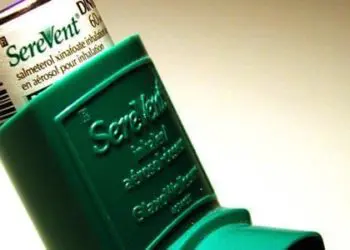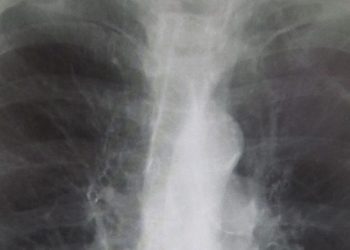Evidence-based interventions for pediatric asthma successfully adapted for community health centers
1. Interventions for pediatric asthma management found to be efficacious in prior randomized control trials (RCTs) showed similar rates of success when implemented at 3 diverse primary care centers.
2. The number of maximum symptom days (MSDs) reported by pediatric asthma patients at intervention sites were significantly lower than those reported at control sites.
Evidence Rating Level: 2 (Good)
Study Rundown: Adaptation of efficacious evidence-based interventions (EBI) from tightly controlled RCTs to real-world primary care centers often proves to be a challenge. In this study, researchers attempted to determine whether EBIs for pediatric asthma management found to be efficacious in previous RCTs* could be effectively implemented in community health centers (CHCs). Children aged 5 to 12 years with moderate to severe asthma were enrolled at 3 intervention sites and 3 capacity-matched control sites serving low resource, high risk populations in Arizona, Michigan, and Puerto Rico. Investigators worked with providers at intervention sites to create “minimum agreed upon interventions” based on components of the EBIs that seemed feasible for CHC staff. Using these modified interventions, results showed a significant reduction in number of symptom days in the previous 4 weeks in patients at the intervention versus control sites. These findings are consistent with results from the rigorous RCTs, despite geographically, demographically, and socioeconomic differences between CHC sites and patients compared with those studied in the RCTs. Furthermore, all 3 intervention sites in this study were able to successfully implement the agreed-upon interventions One limitation of this study is the lack of randomization of study participants to an intervention: control centers were identified based on similarity to previously selected intervention sites, and subjects were divided based on the center where they typically received care. Nonetheless, the ability to successfully adapt EBIs into CHCs has implications for future policy and clinical care decisions that can improve outcomes for pediatric asthma patients.
Click to read the study, published today in Pediatrics
*Click to read the original NCICAS and ICAS randomized control trials
Relevant reading: Adapting and implementing an evidence-based asthma counseling intervention for resource-poor populations
In-depth [non-randomized control trial]: Similar to the RCTs, participants were children aged 5 to 12 years with moderate to severe asthma; however, the study sites were primary care CHCs versus tertiary care centers where the original RCTs were conducted. A total of 590 children were enrolled from 3 intervention and 3 control sites in Arizona, Michigan and Puerto Rico, with 314 participants enrolled at intervention sites and 276 at control sites. On average, 78.5% of participants were Hispanic, with the family income of more than half the participants below $15000 per year. Patients from control sites had slightly higher asthma morbidity than those at intervention sites but were overall similar in terms of baseline severity and demographics. After working with CHC care providers to determine which EBI interventions could be feasibly implemented, all of the intervention sites averaged >4 asthma counseling visits, 96% of children received sensitivity counseling, and ~89% of homes were assessed for allergen exposures. MSDs were defined as the largest value among 3 asthma variables: number of days with wheezing, chest tightness or cough, number of nights asthma interfered with sleep, and number of days asthma interfered with daily activities. Results show a significant decrease in MSDs reported over the last 4 weeks assessed at baseline, 6, and 12 months at intervention compared to control sites (control, change of −2.28; intervention, change of −3.27; difference, −0.99; p<.001). These results were similar to those from the RCTs.
Image: PD
©2017 2 Minute Medicine, Inc. All rights reserved. No works may be reproduced without expressed written consent from 2 Minute Medicine, Inc. Inquire about licensing here. No article should be construed as medical advice and is not intended as such by the authors or by 2 Minute Medicine, Inc.







